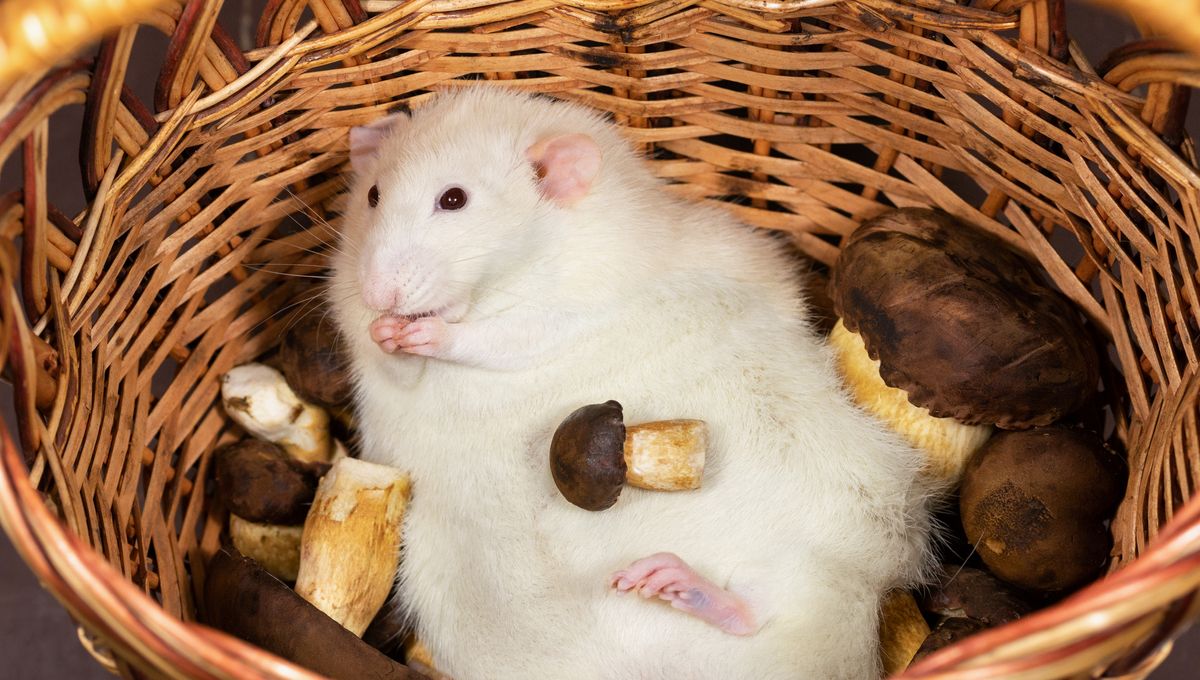
Psilocybin puts rats in a more optimistic frame of mind long after any hallucinogenic effects would have passed, a new study finds. As a result, the authors conclude, the rats were more likely to remember their successes and forget their failures, motivating them to keep trying for rewards.
There is considerable evidence that psilocybin can be an effective treatment for some cases of depression that have failed to respond to standard approaches. Sometimes the drug may lead to more benefit for fewer side effects than first-line options. That doesn’t mean it’s good for everyone with depression however, making it important to identify what makes someone a suitable candidate.
Research in the area has been hampered, not only by laws against the psychedelic drug, but problems inherent in the treatment. As Monash University PhD student Beth Fisher told IFLScience, “You can’t do double-blinded psilocybin trials [on humans] because they know if they have got the drug or the control.” The bright colors and talking trees sort of give it away.
One way of addressing this is to give people microdoses that don’t produce hallucinations, but these may not be sufficient to make a measurable difference. The alternative is to use animals, who, even if they experience weird visions, are unlikely to get placebo effects for anything else.
Fisher is working in a department that is at the cutting edge of testing psilocybin’s effects on rats for mental health conditions. For her PhD on optimism, she collaborated with colleagues to explore the drug’s effects.
This is a way of finding what subset of people with depression will benefit.
Beth Fisher, Monash University
A sample of 22 rats were given either a single dose of saline solution as a control, or a psilocybin/saline mix. Over the next fortnight, after the immediate influence had passed, the rats were offered the chance to touch their noses to one of two ports. One port was rewarded with a sugar treat, the other with nothing; the correct side swapped in a pattern the rats would struggle to solve. Fisher’s rats were well-fed so hunger would not motivate them, and the experiment was done in an area accessible from their “home” cage. The rats had the choice of whether to play for sugar, or do the ratty equivalent of staying on the couch.
The rats that had been given psilocybin played, and won, more than the saline-only rats. Previous studies by Fisher’s co-authors showed rats given psilocybin weren’t any more motivated (for example by valuing sugar more).
That rules out one explanation for their greater success, but there could be many others. The team tested observations of each rat’s behavior against an algorithm that predicted the responses to changes in different psychological drivers. They concluded the behavior matches what would happen if the dosed-up rats remembered their wins (that is the times they got the sugar hit) more, and were more likely to forget their losses.
That combination inspires anyone, rat or human, to be more adventurous, rather than dwelling on all the times things didn’t work. As Ted Lasso would say, (not very scientifically accurately): “Be a goldfish”. Scientists prefer to call stronger memories of success than failure “resilience” or “optimism bias”. Fisher told IFLScience most animals, including her saline-only rats, have an optimism bias, but it was enhanced in those on psilocybin.
The rats in this study were housed in conditions that allowed them to socialize. Solitary cages have been shown to induce depression-like symptoms in rats, and Fisher told IFLScience future studies could investigate how effective psilocybin is at counteracting this. Studies of depressed rats have already shown psilocybin’s effectiveness under at least some circumstances.
Fisher and co-authors note, “Measuring engagement behavior has translational potential for individuals with depression, who often choose to withdraw from the world rather than engage in rewarding activities.” Not everyone is depressed the same way, but in the form the authors refer to it manifests as a tendency to not do things that would improve the depressed person’s mood, be it seeing friends, going for walks, or creating art.
Effects in rodents don’t always translate to humans, but the findings suggest that people with this sort of depression would benefit from psilocybin, days and possibly weeks after taking it.
On the other hand, Fisher acknowledged to IFLScience, an optimism bias can have negative consequences as well, such as gambling more than one can afford or engaging in physically risky behaviors. “This is a way of finding what subset of people with depression will benefit,” Fisher said.
Fisher acknowledged the mechanism by which psilocybin improves optimism bias is unknown. “It could be by increasing serotonin,” she said, which would link it to the hallucinogenic effects. Alternatively, it‘s possible that by coincidence the one molecule affects to chemical pathways independently, as we see with many other pharmaceuticals.
The study is open access in Translational Psychiatry.
Source Link: Psilocybin Makes Rats More Optimistic, Potentially Explaining Its Benefits For Depression